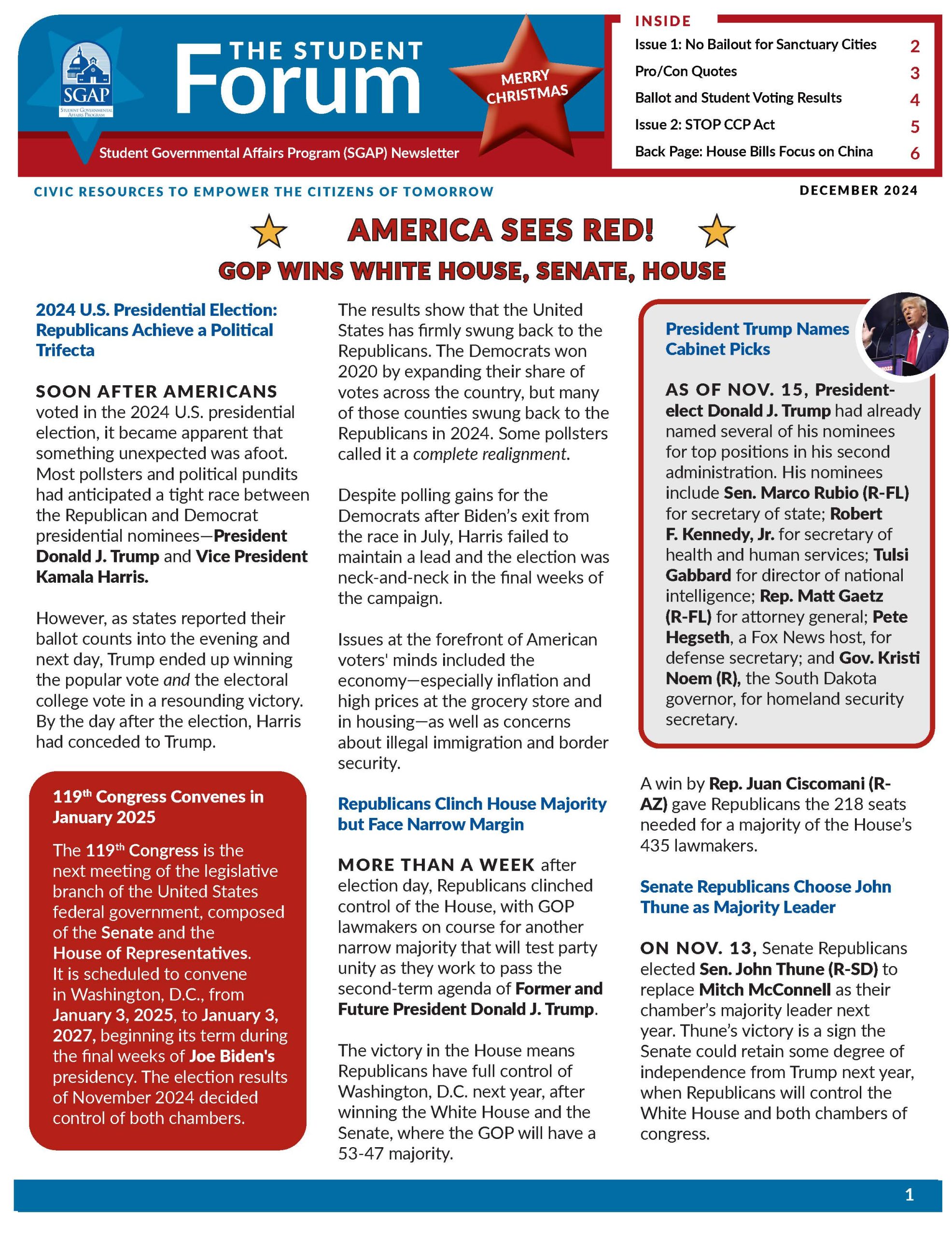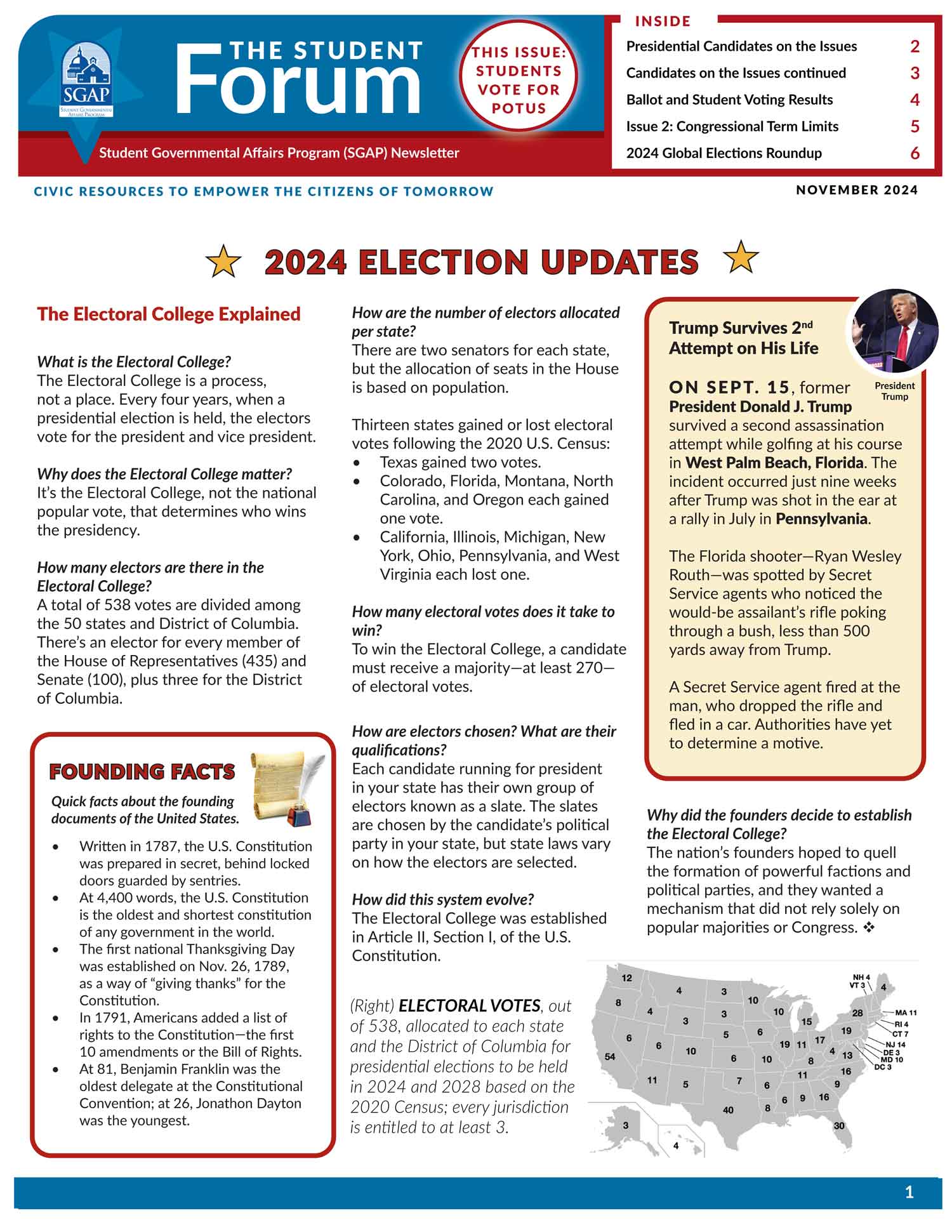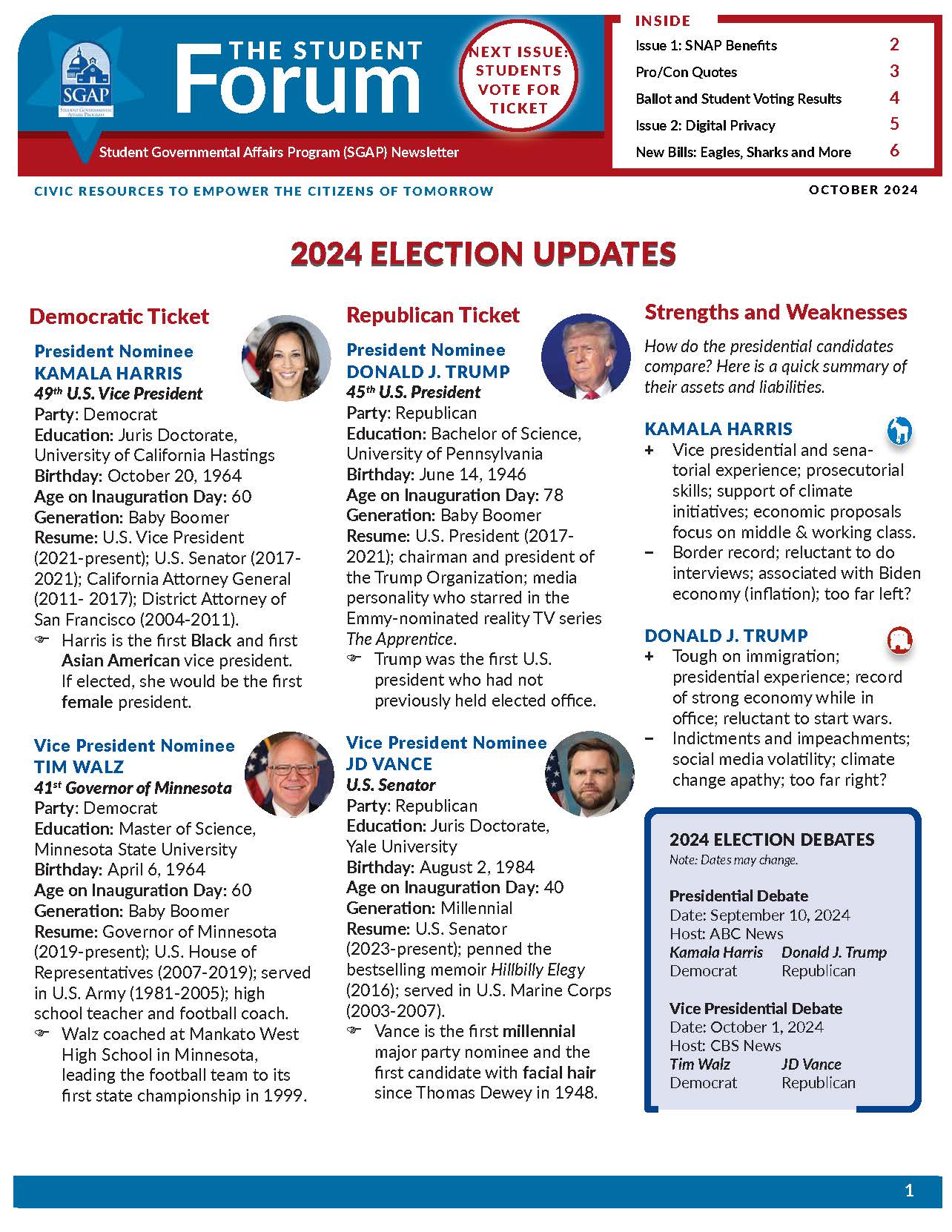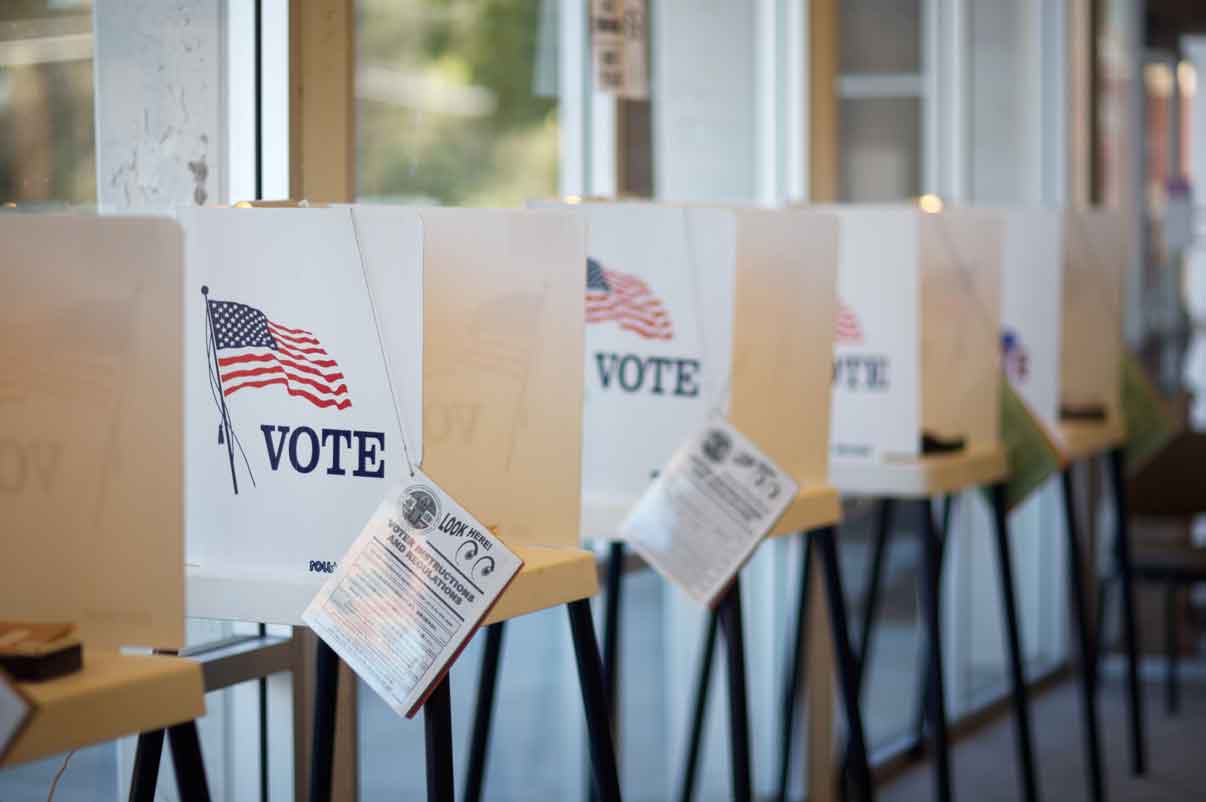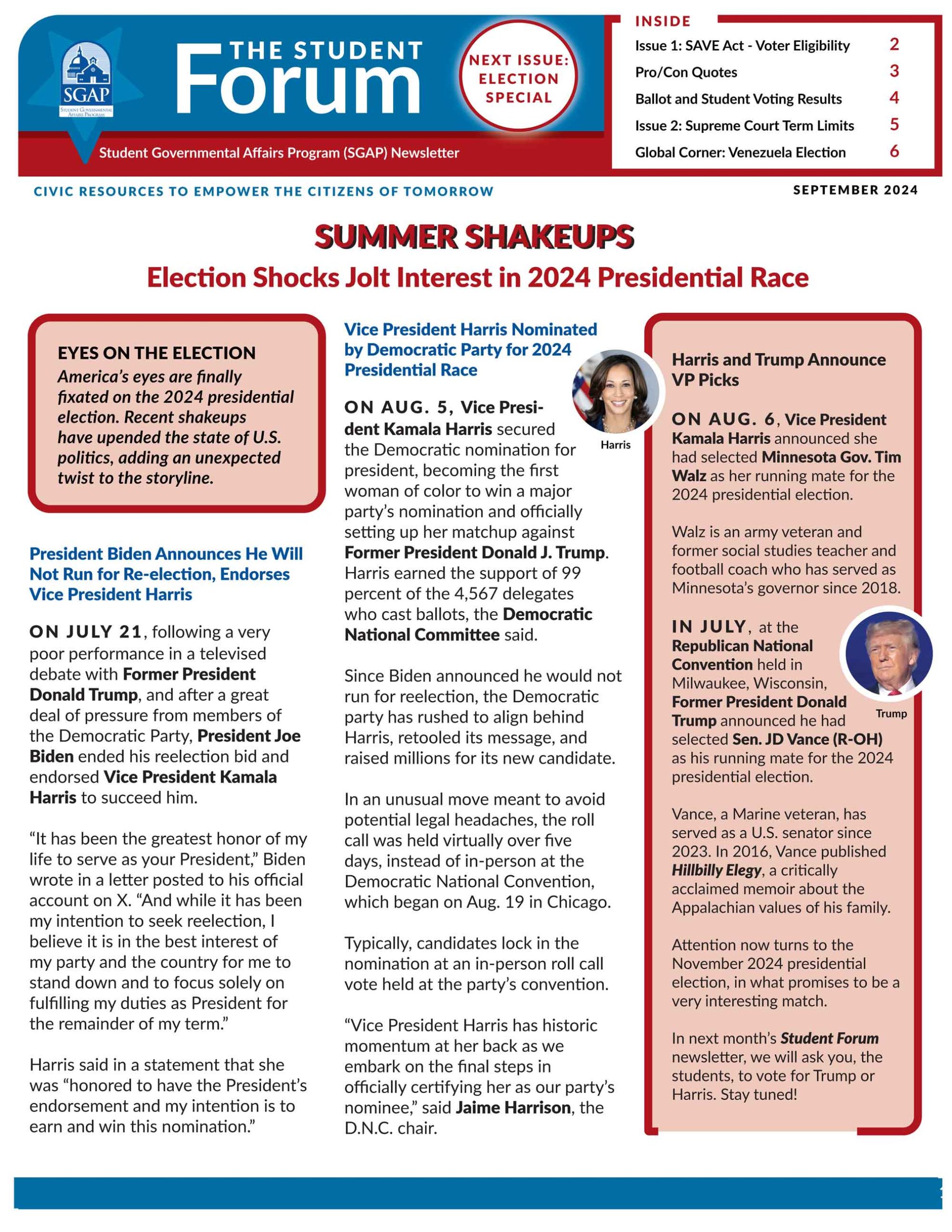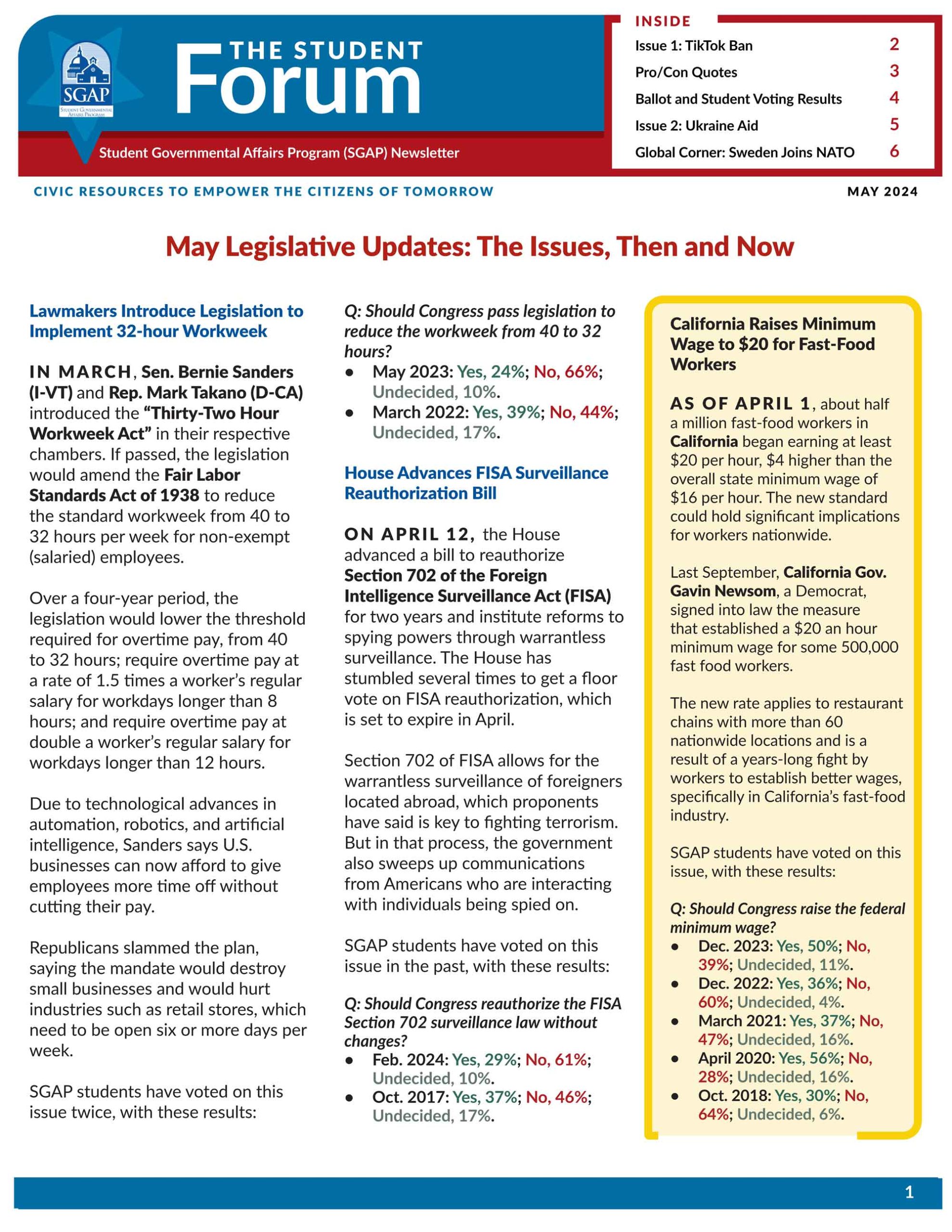
A ‘SANCTUARY CITY’ is a term for a jurisdiction with a policy or practice that discourages local law enforcement from reporting the immigration status of undocumented immigrants to the federal government.
RESEARCH LINKS
Issue 1: Sanctuary Cities
Congress.gov: H.R.5717, “No Bailout for Sanctuary Cities Act”
Fox News: “Which Cities, Counties and States are ‘Sanctuary’ Jurisdictions?”
National Conference of State Legislatures: “Navigating Immigration Policy”
National Immigration Forum: “Bill Analysis: No Bailout for Sanctuary Cities Act”
GlobalRefuge.org: “What Are Sanctuary Cities?”
Fox News: “Blue Cities Rush Dismantle Migrant Shelters as Trump Approaches”
Issue 2: STOP CCP Act
Congress.gov: H.R.3334, “STOP Chinese Communist Party Act”
IssueVoter.org: H.R. 3334 – “STOP CCP Act” For and Against Arguments
WhiteHouse.gov: “Statement of Biden Administration Policy on ‘STOP CCP Act’”
Washington Post: “Trump Set to Deepen Tech Cold War with China”
House Foreign Affairs Committee: “Confronting the China Challenge”
Congressional Budget Office: “STOP CCP Act Cost Estimate”
DISCUSSION QUESTIONS
Issue 1: Sanctuary Cities
- After looking at the Fox News article on which locations are sanctuary cities (link above), what do sanctuary cities have in common? Why do some places decide to become sanctuary cities?
- Do you think city governments should always cooperate with state or federal governments? Why or why not?
- What is a sanctuary city? Why do people support or oppose sanctuary cities? What is your stance?
- Is Immigration an issue in your city or state? Why or why not?
- What rights should illegal immigrants have in our country?
Issue 2: STOP CCP Act
- Do you think Chinese efforts to surpass American global economic, military, and political power are succeeding or failing? Why or why not?
- What do people mean when they describe a country as “number one?” How might your life be different if China was the “number one” nation in the world?
- Does the power of China make you worried in any way? Why or why not?
- How do you think the new Trump administration will change U.S. economic policy toward China?
- How might the United States have a less confrontational and more productive relationship with China?


